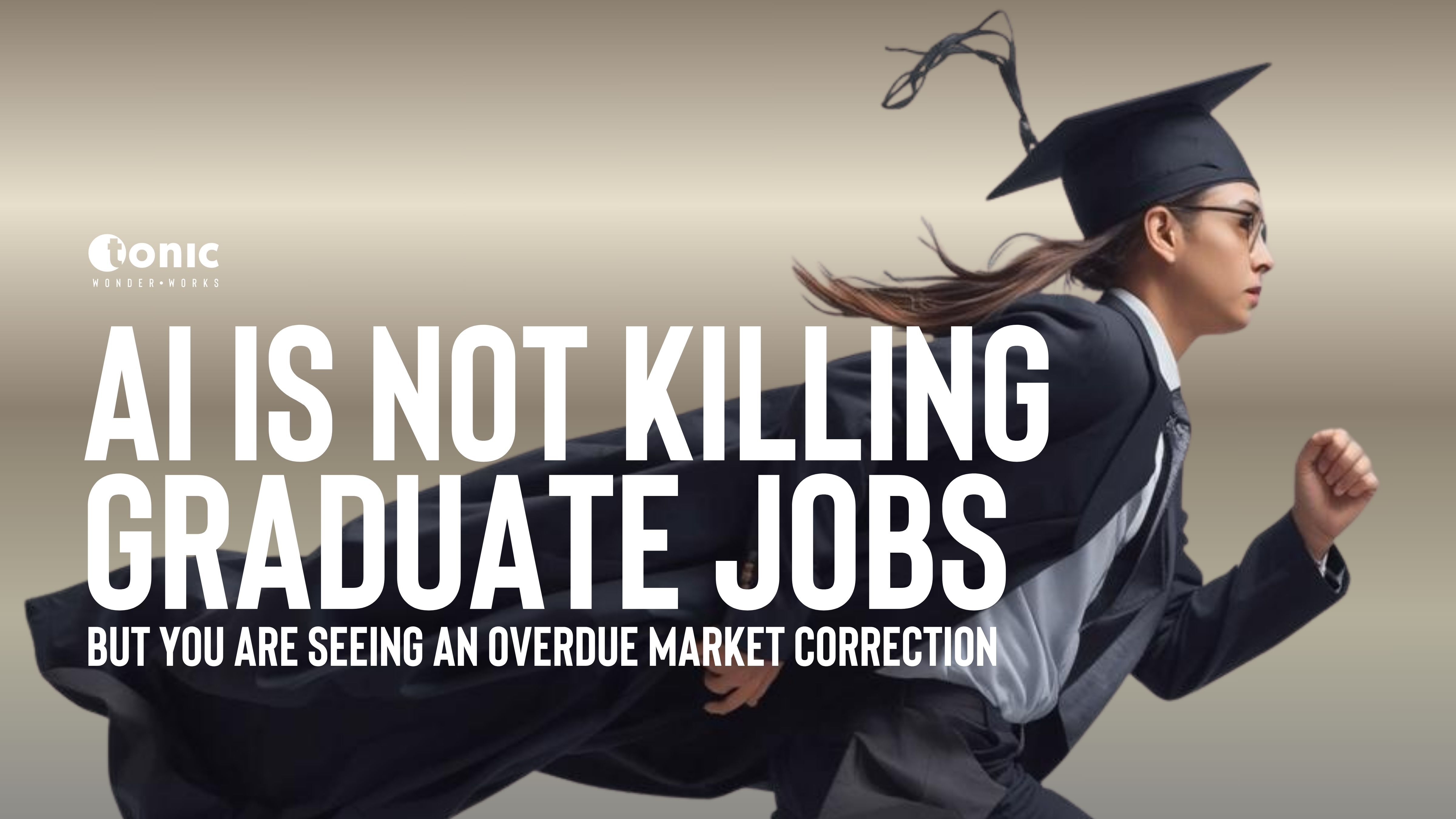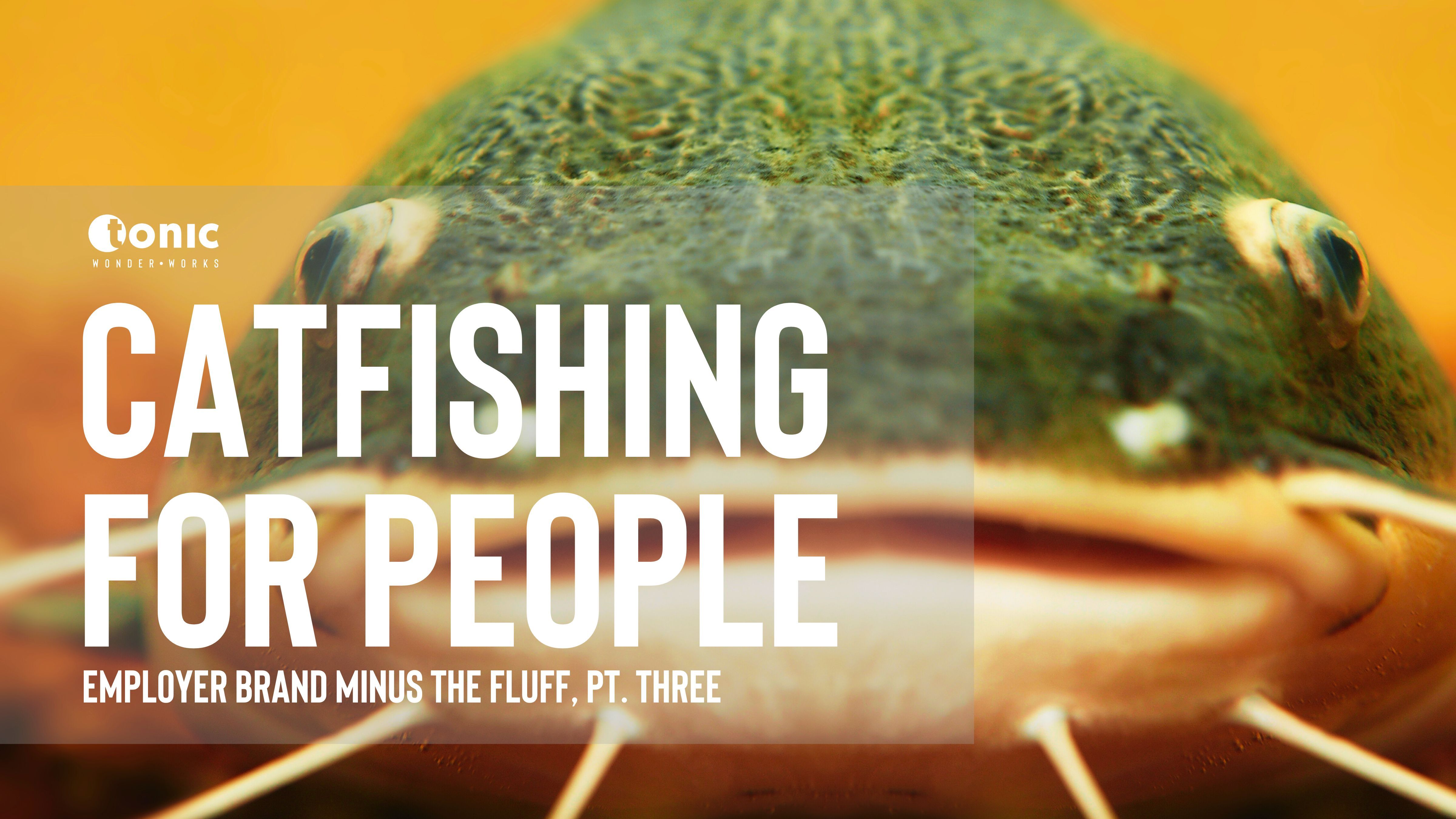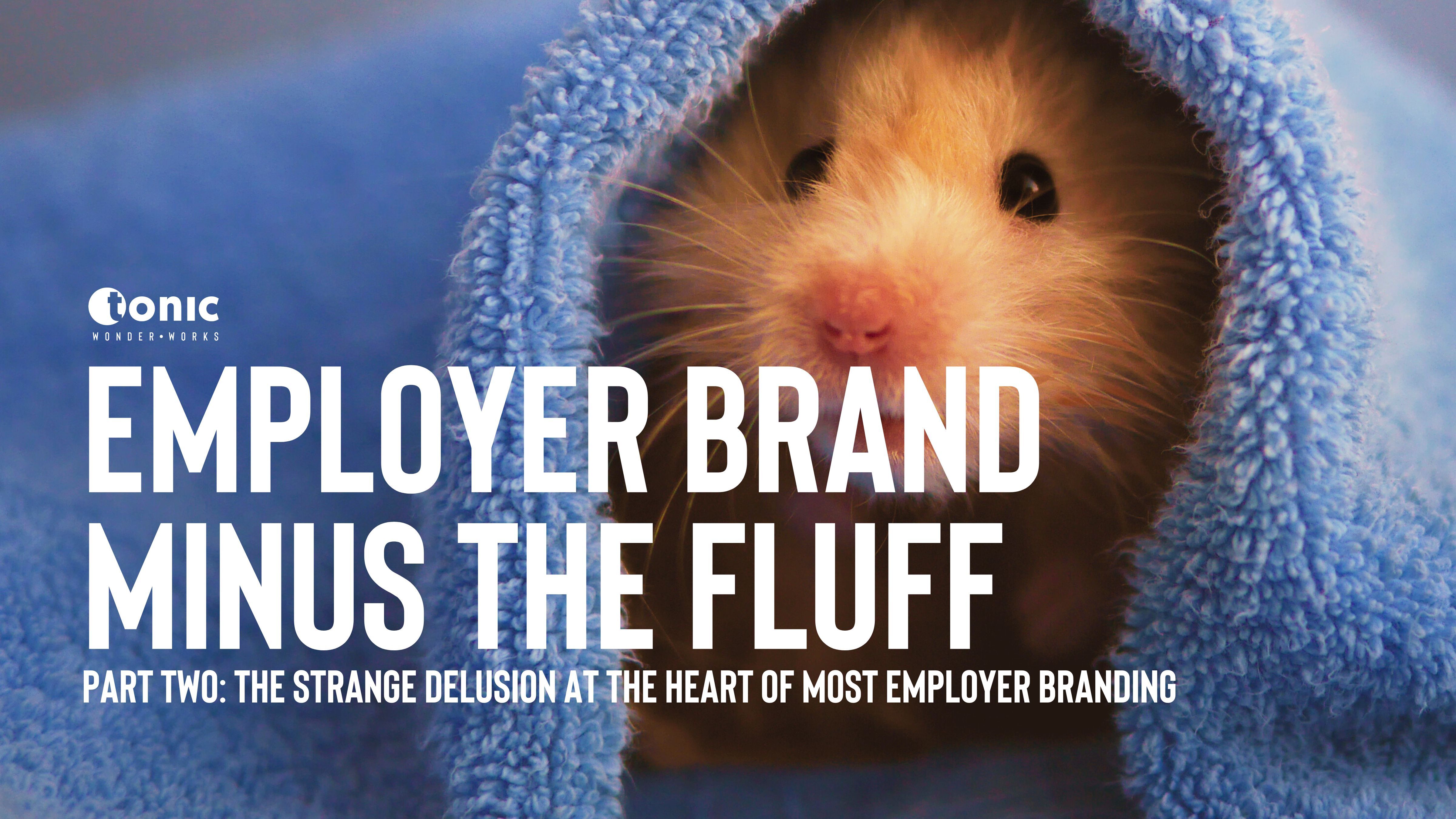The headlines seem to be writing themselves: “AI is killing graduate jobs.”
And like most things that write themselves, it’s lazy.
Yes, graduate hiring is down. But AI didn’t do it. The latest ISE Student Recruitment Survey says as much.
It’s not a bloodbath. It’s a rebalancing.
Yes, graduate recruitment is down 8%. But school and college-leaver hiring is up 8%. Entry-level roles overall are down just 5%.
That’s not carnage. That’s a correction.
The market’s shifting shape. Not collapsing.
Which is good news.
Especially if you have skin in the game
Like my daughter, who finishes university next summer.
The Graduate Squeeze is Not the Whole Story
So, just to reiterate: graduate jobs are down.
But so is the ratio of grads to school leavers, from 2.3 to 1.8. That’s important.
Employers aren’t giving up on early talent, they’re just spreading the bets.
Some of this is pure numbers. We’ve had years of more graduates than roles. The pipeline swelled, but demand didn’t. Throw in a wobbly economy and sectoral slowdowns, and this drop looks less like a drama and more like a backlog.
A few sectors have been coasting on the graduate model. Because that’s what they’ve always done. Now they’re asking different questions.
Not: What degree did you get?
But: Can you do the job? Can you grow with us?
140 CVs, 1 Job: There’s a Volume Problem
Employers are drowning in applications.
140 per role, on average.
290 in retail, FMCG, and tourism.
It’s easier to apply than ever.
Just enough effort to feel like you’ve done something.
But not enough to stand out.
So, there's psychology at play
Application inflation is real.
AI helps grads apply faster.
Anxiety makes them apply more.
And relaxed entry criteria mean they think they might have a shot.
So the volume goes up. But interestingly, quality doesn’t go down.
93% of employers say they’re happy with who they hire.
Which tells you something: the talent’s there. But the signal’s buried in the noise.
AI Isn’t the Killer, But It Is the Culture Shift
Half of employers (49%) now allow candidates to use AI in their applications.
One in ten ban it.
Four in five are redesigning their processes.
Only 15% are using AI exclusively, but 62% expect to within five years.
That tells you where it’s going.
Right now, AI hasn’t killed graduate recruitment, but it has changed the etiquette.
There’s a new ambiguity in play.
Who wrote that CV?
Who answered that question?
Is this a “real” candidate or a good impersonation?
The tools are changing faster than the rules.
And what’s at stake isn’t just speed. It’s trust.
Employers need to be faster, yes.
But also more human.
Efficient, but not robotic.
Scalable, but still fair.
That’s the line we’re all learning to walk.
Apprenticeships: The Shift Beneath the Surface
81% of ISE employers now recruit apprentices.
More than three-quarters also recruit school leavers.
Some are shifting budgets, cutting grads by 21%, upping apprentices by 12%.
That’s not a fad. That’s a reset.
Because apprenticeships aren’t just cheaper. They’re stickier.
And they often come with less baggage.
You get talented people, shaped earlier.
You train them for what you need, not what universities think you need.
You invest once, not three times, in recruitment, onboarding, and re-training.
For some employers, it’s just better business.
This doesn’t mean the graduate route is dead. But it’s no longer the default. And that changes everything.
EDI: Still Standing. Still Strategic.
You’d expect diversity to drop off when budgets get tight.
But 92% of UK employers say they’re holding the line.
Two-thirds say their commitment is unchanged.
13% are doubling down.
Compare that to the US, where the EDI backlash is in full swing.
The UK early-careers space, by contrast, is playing the long game.
And rightly so. In a noisy, over-supplied, restructured market, clarity matters. Culture matters. Reputation matters.
You don’t just need to look inclusive.
You need to be inclusive.
Because the next generation sees straight through the waffle.
So What Could Employers Do?
This isn’t an AI crisis.
It’s a market correction.
The graduate hiring model, dominant for decades, is now one of several viable routes.
Employers need to be smart about where they place their bets.
A few things you could focus on:
- Don’t fixate on degrees. Apprentices and school leavers are just as viable. Just as capable. Sometimes more loyal.
- Fix the funnel. Too many applications, too little insight. Filter smarter. Reduce the noise, not to replace judgement.
- Be honest about AI. If you’re using it, say so. If you’re allowing it, say how. Candidates can handle nuance. Just don’t pretend it’s not there.
- Keep EDI real. This is the moment to prove it matters. Not in the press release. In the process.
Here’s the Point
Recruitment isn’t just about filling roles.
It’s about building confidence.
In your brand. In your process.
In the people you’re bringing in.
Early-careers candidates aren’t just future employees.
They’re future leaders, future advocates. Or future critics.
If the market’s shifting, shift with it.
But don’t forget what matters.
The best employers will adapt.
The smartest ones will adapt without losing themselves.





